July 2022

With continued upheaval and economic instability due to rising inflation, tight supply chains, and persistent pandemic fears, the labor market remains one of the tightest in recorded history. The Great Resignation has left many businesses scrambling to fill open roles and struggling to determine how to continue growth or achieve strategic plans with a seemingly revolving door of employees.
While the function of Recruitment is to add headcount to an organization or backfill open positions, little has been shared about Recruitment’s role in promoting employee retention. The fact is that employee retention starts with Recruitment. The Recruitment function of an organization is the first impression candidates and prospective candidates may receive. Thus, it is critical to make it a positive one. The following are several steps that Talent Acquisition partners can and should take to lay the foundation for long-term employee retention, whether internal or external.
Be Real
Often, recruiters approach talent acquisition as a transaction, “selling” the company by focusing on all of the exciting and wonderful features, perceived or real, about a company. It comes naturally for many recruiters because they are often selected to be a Talent Acquisition professional based on prior or exhibited sales experience. While salesmanship is not bad, it boils down to how you use the skill.
Whether in retail, B2B relationships, and even the most complex business interactions in the M&A arena, no one wants to be “sold” today. What people want are solutions to problems. Uncovering these concerns requires a consultative approach. A true consultant will reflect care and compassion, listening to understand first before being understood. A high Emotional Quotient (EQ) combined with an analytical approach will allow the Talent Acquisition professional to best consult with the candidate and help them understand the alignment between them and the role to be filled. This soft approach opens the hearts and minds of candidates to what they can expect when joining a company and often is the first trigger towards high engagement.
Part of consulting is ensuring prospects and candidates understand the good and the bad about a company. No company is perfect, just like there are no perfect candidates. The exclusive pursuit of only the perfect will always disappoint, leading to disaster and an impossibly long recruitment cycle.
Every company has challenges. The right candidate must understand these challenges and be excited to tackle them. Of course, there must certainly be something in it for them, and the advantages should be presented to balance the discussion. In the end, there should be a win-win scenario where the advantages and disadvantages are shared, where both see that the right candidate will enhance the company’s advantages while solving their challenges. The right candidate’s advantages should be the right fit to solve these challenges, while a company’s advantages should be able to support the candidate’s growth and development.
Be Engaged
Automation permeates so much of our lives, and the intent is to make things easier and faster, to do more with less. Unfortunately, there are times and interactions where technology is just a poor substitute. How many of us receive blind outreaches on LinkedIn, email, or even spam calls about products or services that have no alignment to us, what we do, want, or need? Someone is throwing mud on a wall and hoping something will stick. But how do you feel about such an approach when you receive one? Do you think a candidate will feel different just because you deploy such an approach?
Everyone, to one degree or another, wants to be noticed and recognized for their accomplishments. They want to be wanted and sometimes pursued. When reaching out to the passive job market, craft personal messages that tell the prospective candidate you read their profile or resume. Connect the dots to show them what made you believe a conversation may be worth their time, and importantly – do your homework.
When Talent Acquisition professionals are disengaged, they ignore the little details that make the most significant differences. They fail to catch experience, education, and geography. There is a lack of analysis and understanding of career trajectory or directionality. But the most critical miss of the disengaged Talent Acquisition professional is a failure to follow up. They make promises they don’t or can’t keep. Candidates and prospective candidates view this as disingenuous. The perception is that the Talent Acquisition professional— to put it lightly— is not very professional. If by some miraculous chance the candidate is hired, there is already an expectation of unprofessionalism at your organization, and therefore they start with one foot already out the door.
We all have unforeseeable surprises that derail our best intentions. When this happens, the Talent Acquisition professional should be upfront, share, and sincerely apologize. Just as important as the apology is the commitment not to repeat the same mistake. Go the extra mile to set communication touchpoint dates and follow up on those dates. If a role is put on hold by the powers that be, then precisely share that. Candidates are more understanding than Talent Acquisition professionals sometimes realize. They work or have worked in businesses where hiring freezes have happened, layoffs may be seasonal, and the needs of the company are constantly changing. They get it. So, tell them politely, but tell them.
Be Communicative
The most frustrating thing for candidates at all levels, from hourly non-exempt to C-level, is a lack of communication. To communicate to a Talent Acquisition professional but never receive communication in kind.
On the internal corporate recruiter side, this issue is over-the-top present. It happens when most candidates apply for a position and never hear a response. It is driving so many not to apply and is a massive contributor to the decline in the effectiveness of job postings. All through the Great Recession, when unemployment was near 15%, high-quality top performers repeatedly applied to job postings with no response, not even an automated message indicating receipt of their application. When there was an automated message, it was cold, calculated, and impersonal. Fast forward to the Great Resignation, and people are finding jobs as part of the passive market, so there is no need to apply, and even when they are actively seeking, the sting of the experience from the Great Recession is still on their minds.
Understandably, there is a risk to businesses when rejecting candidates. The risk is the start of a discussion where a candidate walks away feeling they were rejected on the grounds of discrimination. As a result, many companies choose not to communicate at all. After all, if they don’t tell the candidate anything, there is nothing they can cling to as a claim of discrimination, right?
Wrong. It still happens. Only now, they are more disgruntled than ever due to a lack of respect through the failure to communicate.
Communication is the best way to protect the organization and build a relationship with someone interested in your brand. Tell them they were not selected. Encourage them to apply to future postings. Craft messages that lift them up. You asked them to fill out an application, disclose personally identifiable information, create a resume and prove their accomplishments to you. The least you can do is treat them humanely and communicate. Strangers on the street often receive more acknowledgment than many candidates or prospective candidates.
External agencies can be nearly as harsh. Pressed for speed by client businesses, this speed has the effect of decreased quality in candidate interactions. Lack of communication and responsiveness sends a poor impression. IF a candidate is hired after such a rough go with an external and internal recruitment team, think about their mindset. How many would be fully engaged in their work and positively perceive the company? Initial impressions are formed by a candidate’s first experience with your company, and that is through your recruitment process and the business partners involved in that process. The better the candidate’s experience, the higher the likelihood of employee retention long-term.
Retention Starts With Recruitment
When you are honest with candidates and prospective candidates, stay engaged with them throughout the process, and effectively communicate with them as people deserve, you set the stage for what they can expect upon being hired. Even those who are rejected will feel the experience was positive enough that they will accept future calls, will be more likely to apply to future openings, and will share the good news about their interaction with the Talent Acquisition professional and the company to others throughout their network. When new hires arrive for their first day, they will be energized and have a balanced perspective of what they are walking into since the good, bad, and ugly were already shared during the recruitment process. There will be a higher retention rate as a result of this positive experience. Now, if we can avoid blowing this all up during onboarding!
CONTRIBUTOR: Michael Maggiotto, Jr. PHR, SHRM-SCP, Head of Advisory at BEST Human Capital & Advisory Group
The Answer for Today and Tomorrow
In this unprecedented business environment, it may also be time to shift your thinking on recruiting and make an investment to bring on an experienced hiring partner. One that can help you acquire the right IT talent and put your company in a position to grow. We can help.
New Iron Solutions realizes that it is more important than ever not just to fill an IT position, but fill it with a candidate that will take your company to the next level. It may be time to bring on an experienced partner to help you navigate this new age as the cost of IT employee turnover and missed opportunities are just too high to ignore. We help drive the achievement of our client company’s strategic goals by identifying middle management to C-Level leadership professionals. They align with the culture, behaviors, and results valued by your organization.
If you have a temporary, project-based, IT, or direct placement need or want to know how we can help, contact New Iron Solutions online today or call 1-844-388-IRON (4766).

